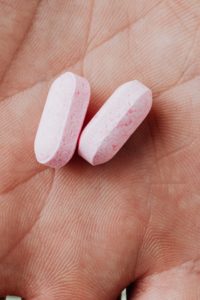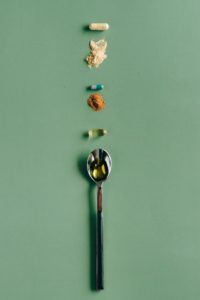 The oral route is the most common route for drug administration. Medications in the form of tablets, capsules, and syrup are preferred due to their advantages, such as non-invasiveness, cost-effectiveness, stability, and convenience. Problems arise when some patients find these medications difficult to swallow. Trouble swallowing pills can affect many children, the elderly, individuals with disabilities, and patients requiring the use of a nasogastric tube. Mixing the contents of a capsule with food or adding a crushed tablet to a drink may seem like a better option to some carers and patients. However, it is not safe to crush a tablet or open a capsule without checking it first with healthcare professionals.
The oral route is the most common route for drug administration. Medications in the form of tablets, capsules, and syrup are preferred due to their advantages, such as non-invasiveness, cost-effectiveness, stability, and convenience. Problems arise when some patients find these medications difficult to swallow. Trouble swallowing pills can affect many children, the elderly, individuals with disabilities, and patients requiring the use of a nasogastric tube. Mixing the contents of a capsule with food or adding a crushed tablet to a drink may seem like a better option to some carers and patients. However, it is not safe to crush a tablet or open a capsule without checking it first with healthcare professionals.
Generally, tablets and capsules need to be swallowed whole with a glass of water. The general public is advised not to cut, crush, or chew medication unless instructed to do so by a doctor or pharmacist. With the latest pharmaceutical technology and drug delivery systems, manufacturers are able to manipulate medication formulations to achieve the desired effects. There are medications that are designed to be released at a specific rate or at a specific location within the digestive tract, such as the stomach or small intestine. Therefore, crushing tablets or opening capsules that are not designed to be taken this way may cause serious side effects and prevent the medications from working properly.
It is essential to understand the rationale before deciding whether it is safe to crush the tablet or open the capsule. Listed below is the formulation of tablets and capsules that should never be crushed, chewed, or opened.
- Modified-release tablet
A modified-release tablet, as the name indicates, may have multiple layers of coating to alter the rate at which the medication is released. It is designed to release medication over an extended period of time to allow less frequent administration and improve patients’ compliance. This group of medications can be identified by two letters at the end of the name, such as MR, LA, CR, XR, or SR. If a modified-release tablet is crushed or chewed, the whole dose can be released too quickly in the body, and patients are more likely to experience side effects of overdose.
- Enteric-coated tablet
These medications have a special coating on the outside to protect the tablet from gastric acid in the stomach. Some medications are intended for site-specific delivery, such as the intestine. Without an enteric coating, medications will dissolve in the stomach and undergo metabolism before reaching the target location. This will in turn cause fewer medications to be absorbed into the bloodstream and reduce treatment effectiveness.
Besides that, the enteric coating also protects the stomach lining from the irritating effects of certain medications, such as non-steroidal anti-inflammatory drugs (NSAIDS). This coating allows the medications to pass through the acidic stomach intact and dissolve in the intestine.
- Capsule
Patients are not encouraged to open a capsule because there is a risk of medication loss. This can lead to patients not getting the full therapeutic dose for their treatment. Instead of powder and liquid, some capsules contain modified-release granules or beads. Mixing the granules in food or drinks may result in treatment failure.
- Cytotoxic tablet
Cytotoxic medications are used for the treatment of cancer and autoimmune diseases. This medication works by interfering with cell replication and, hence, destroying tumours and cancer. Most cytotoxic tablets are developed with a site-specific delivery system to target a few specific tissues. Crushing this medication can damage cells in the digestive tract and cause severe irritation.
- Sublingual and buccal tablet
A sublingual tablet is a medication that is placed under the patient’s tongue, whereas buccal administration involves placing the medication between the gums and cheek, where it dissolves and gets absorbed into the bloodstream. This formulation is used to develop medications that require rapid absorption and a fast onset of action, such as glyceryl trinitrate tablets (GTN). GTN is used for acute relief of chest pain in heart attack patients.
Other than that, tablet coating can also mask unpleasant bitter tastes and odours. Its smooth surface makes the tablet easier for patients to swallow as well. Some active ingredients are sensitive to heat or moisture; hence, crushing the tablet exposes the ingredients to degradation.
Things to consider
 Always read the instructions in the leaflet to check if it is suitable to cut or grind a medication. Not all tablets can be cut safely. As a general rule, if the tablet has a score mark or groove-down the middle, it can be split in half. Use a pill cutter to aid with tablet splitting; avoid using a kitchen knife or scissors. Be sure to talk to your doctor or pharmacist before doing so. It may also be possible to get medication in another form, such as a powder, cream, or liquid, so do not hesitate to ask your healthcare provider.
Always read the instructions in the leaflet to check if it is suitable to cut or grind a medication. Not all tablets can be cut safely. As a general rule, if the tablet has a score mark or groove-down the middle, it can be split in half. Use a pill cutter to aid with tablet splitting; avoid using a kitchen knife or scissors. Be sure to talk to your doctor or pharmacist before doing so. It may also be possible to get medication in another form, such as a powder, cream, or liquid, so do not hesitate to ask your healthcare provider.
In a situation where medications are safe to be crushed, patients or carers should use suitable solvents, as some medications may have interactions with milk or orange juice. Simple syrup can be used to dissolve crushed medications due to its viscosity and ease of handling.
As a conclusion, not all tablets can be crushed or cut. Crushing some medications may lead to side effects and treatment failure. Take medication as advised by your doctor and pharmacist. Any inquiries about medicines and other related issues can be made to the National Pharmacy Call Centre at 1-800-88-6722, every Monday to Friday, from 8 a.m. to 5 p.m. (except on public holidays).
Prepared by:
Syafi’ah Binti Bakaruddin
Pharmacist, Ministry of Health
